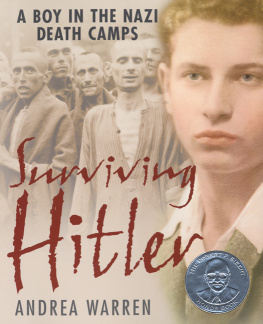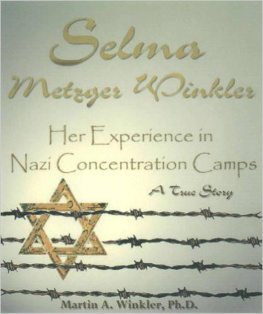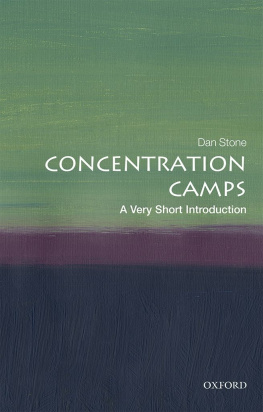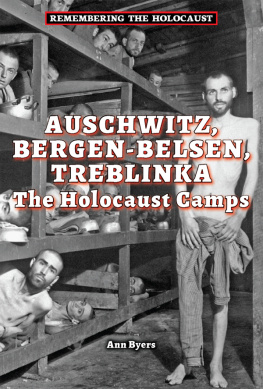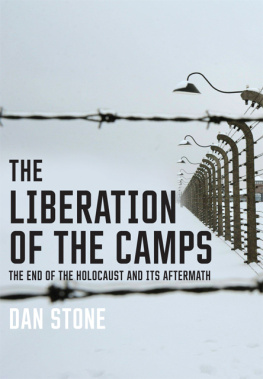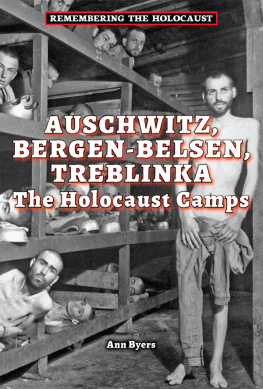
Orphan Train Rider: One Boys True Story,
(Boston: Houghton Mifflin, 1996)
Pioneer Girl: Growing Up on the Prairie
(New York: Morrow Junior Books, 1998)
We Rode the Orphan Trains
(Boston: Houghton Mifflin, 2001)
F OR K YM, MY SHINING LIGHT
In Germany they first came for the Communists, and I didnt speak up because I wasnt a Communist. Then they came for the Jews, and I didnt speak up because I wasnt a Jew. Then they came for the trade unionists, and I didnt speak up because I wasnt a trade unionist. Then they came for the Catholics, and I didnt speak up because I was a Protestant. Then they came for meand by that time no one was left to speak up.
Reverend Martin Niemller,
Protestant minister, Germany, and
concentration camp survivor
Sadly, racial, ethnic, and cultural hatred and intolerance are not just history; they are current events.
Steven Spielberg
Film director
I have always known my father as a very loving, caring person who is completely devoted to his family. When I visited Poland with him and heard the story of what had happened to him during the war, I understood for the first time what he had lived through. Now that I know what he survived and have seen what he has done with his life, he is my greatest hero.
Mark Mandelbaum
Jacks son
L ike every book, this one has received support, advice, and hands-on help from many people. First and foremost is Jack Mandelbaum, who generously shared not only his memories but also his scholarship and his time. My husband, Jay Wiedenkeller, was, as always, my mainstay while I struggled with difficult subject matter. Barbara Bartocci and Deborah Shouse offered invaluable help. My agent, Regina Ryan, shared my inspiration and commitment to bringing my literary vision to life. Barbara Lalicki, my editor at HarperCollins, and assistant editor Rachel Orr saw me through the rough spots as my manuscript was transformed into this book.
I was also assisted by Chris Sims at the United States Holocaust Memorial Museum; Jean Zeldin, Susan Haws, and Fran Sternberg at the Midwest Center for Holocaust Education; and the archival staff at the Truman Library.
Others to whom I am grateful are Murray (Moniek) Ciesla for his memories, and Pola Firestone, James Levy, Amy Sussna, Lisa Armstrong, David Barash, Debi Fast, Claudia Mandelbaum, and Shirley Sander and the late Sam Sander.
Finally, a very special thank-you to Andrea Curley, my first editor, whose editorial eye and encouragement helped this project take flight.
CONTENTS
B efore his sudden death in 1998, Sam Sander of Kansas City opened my eyes to the Holocaust.
In the small Nebraska town where I grew up in the decades following World War IIa war that both my father and uncle fought inno one talked about the Holocaust, nor did I know anyone who was Jewish. My high school history textbook allotted only a few sentences to this catastrophic event. Photos showing emaciated survivors and the grotesque bodies of the dead suggested such horror that I wanted to stay as far away from the subject as I could.
Then I met Sam. He told me about his terrifying experiences in Hitlers death camps and showed me the tattoo on his arm from Auschwitz. Sam made real the faces in the photos. I looked at them again and saw actual people instead of victims. Each person had once had a good life, people he or she loved, and hopes for a happy future. Then all of them were ensnared in Hitlers frenzied mania to destroy the Jewish race and other enemies of the Nazi state.
I began listening to the stories of survivors. When I met Jack Mandelbaum, I knew I wanted to tell his story. Like Sam, Jack spent three years as a teenager in the death camps. He survived through courage, luck, help from others, and sheer will. Like all survivors, he has much to teach us about bravery and self-reliance, and about history and the lessons of the Holocaust.
I have reconstructed this history from fact and from Jack Mandelbaums experiences. While he has a remarkable memory, he of course could not remember verbatim conversations that took place over sixty years ago. Thus, when you read direct quotes set in the times before and during the war, please be aware that I have exercised literary license, writing them as closely as possible to the way Jack recalled them.
Sometimes from survivors we can gain insight into our own lives. Sam had shown me a letter he received from a student who had listened to him speak at her school. She told him she was having problems at home and school and had tried to kill herself. She had been planning to try again. Then she heard him. Listening to the horrible things he had gone through, she decided that if he could survive what he had, and still create a good life for himself, then she would try to work out her problems. She reported that things were much better now, and she was grateful to him for what she had learned from him.
In spite of how hard it may be for us to hear the survivors stories, it is even harder for them to tell us. It forces them to relive the nightmare of their brutal and inhumane experiences. But they know we must be warned. People throughout the world continue to do horrible things to one another. We have so much yet to learn. If we will open ourselves to their stories, with the Holocaust survivors as our guides, we can learn to recognize and work to eradicate the roots of racism, discrimination, oppression, and tyranny.
If we do not, who might be the next target of the kind of ethnic cleansing practiced by the Nazis? Could it be you?
U ntil he was twelve, Jack Mandelbaum assumed his life would always be a carefree adventure.
He lived with his father, mother, older sister, and younger brother in beautiful Gdynia (ga-DIN-ya), Poland, on the shores of the Baltic Sea.
Our city was the pride of Poland, Jack recalled, remembering his childhood. Ships came into port from all over the world. I heard many foreign languages. I saw sailors who wore turbans, and black sailors from Africa. This was just part of my daily life.
Jack collected stamps and begged ship captains for ones from faraway places. He kept his stamps neatly categorized in books and loved to imagine the strange and exotic countries they came from.
His father, Majloch MandelbaumMax to his friendswas the prosperous owner of a fish cannery. The family lived comfortably in a spacious apartment with big windows on one of the most prominent streets of the city, just a few blocks from the beach.
We had every modern convenience, Jack said. Because I lived in the city, I did not realize that many people in Poland were without electricity, indoor plumbing, and telephones.
Our home was filled with laughter and kisses. My parents were very much in love. They were openly affectionate with each other and with us children. It was a lovely life.
Jacks mother, Cesia (Sesha), dressed elegantly. She wore silk dresses, high heels, jewelry, and hats with veils. In cold weather, she wore her fur coat. She was very beautiful, with dark eyes and long, shiny black hair, which she arranged in the latest styles from Paris.

Jack has no photo of his mother, but she bore a strong resemblance to her older sister, Tauba Goldwasser, pictured in this photo that survived the war.
Next page
